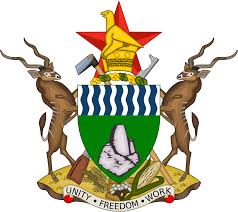People living with disabilities say their knowledge of the constitution is low which has seen them failing to fully exercise their basic rights.
Chapter 2 of the constitution section 22 (3) (a) states: In particular, the State and all institutions and agencies of government at every level must develop programmes for the welfare of persons with physical or mental disabilities, especially work programmes consistent with their capabilities and acceptable to them or their legal representatives.
In an interview on the sidelines of a constitutional literacy training workshop held in Bulawayo recently, Robert Malunda who is visually impaired and the founder of Gateway to Elation, an organisation that trains the visually impaired and the deaf said there should be more copies of the constitution that are designed for persons with disabilities.
“The medium being used in presenting the constitution so far, is not accessible to people with disabilities,” said Malunda.
“The braille copies for the constitution are very few and it is difficult to access them. There can be an easier option of an audio constitution but l have not come across one.”
He said the deaf need the constitution to be clearly designed for them to understand.
“There is also a need for a constitution containing imagery for the deaf, especially for those who did not have the privilege to learn how to read and write. The best solution for the deaf unable to read would be to learn through images, that would help deaf people,” said Malunda.
He stated that disabilities can come in different forms and the constitution should be relayed in different means that will enable any person with a disability to be able to understand it.
“There are some who are intellectually challenged and unable to interpret the constitution written on paper,” said Malunda.
“We could use skits, dramas or something relevant to them that they can relate with.”
He pointed out that there should be continual constitutional awareness programmes to increase constitutional literacy in the country especially for people with disabilities.
“There should be positive discrimination, in that only persons with disabilities would be invited in constitutional awareness programmes meant for them. This would help increase constitutional literacy,” said Malunda.
Motivational speaker, gender and disability activist Soneni Gwizi said all organisations should form disability desks to ensure persons with disability are assisted and the constitution is explained to them in the way they understand.
“Civil society organisations should have a disability desk where they are able to communicate with experts on disabilities to get information so that they share it,” said Gwizi.
“This work is for everyone, it cannot be left to persons with disabilities to do it.”

